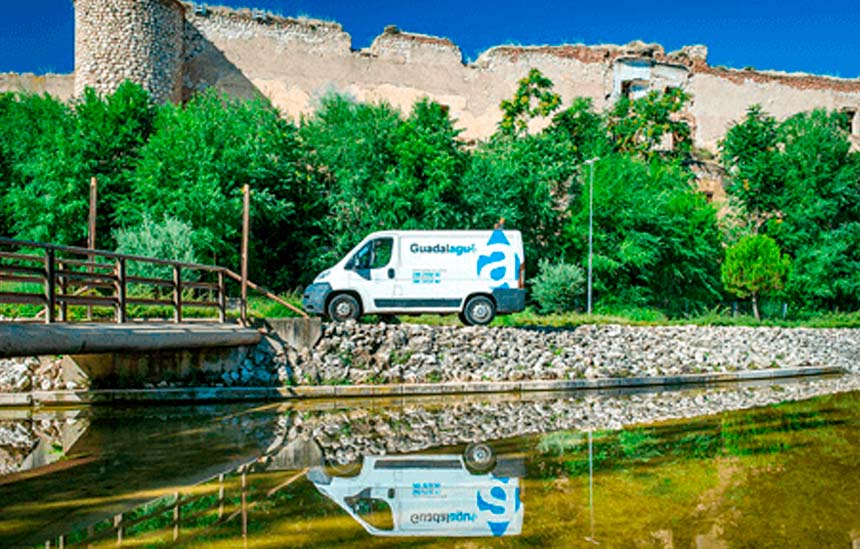Both projects have PERTE funding to improve service management and energy efficiency.
Sacyr Water will invest €5.9 million to digitize the integrated water cycle in the cities of Guadalajara and Soria, €4.6 million of which come from the second call of the Spanish Government Proyectos Estratégicos para la Recuperación y Transformación Económica (PERTE) funds.
Sacyr has already fully digitized the integrated water cycle management in Santa Cruz de Tenerife and the City of Melilla.
Both digitization projects are centered around on Digital Transformation and will focus on reducing energy consumption, improving hydraulic performance, and reducing network losses, increasing the availability of resources, and controlling water quality.
Guadalagua (100% owned by Sacyr Water) manages the integrated water cycle in the municipality of Guadalajara, where it will carry out the +H2D Project. This project has an investment of €3.98 million for the modernization and digitalization of the integrated water cycle, of which €3 million will come from PERTE funds.
This project will promote the use of new information technologies in the city’s integrated water cycle, which will improve its management, increase its efficiency, reduce losses in supply networks and advance in meeting the environmental objectives set by hydro planning and international regulations.
“With +H2D, a project was born with several management scales that generate a positive impact on the integrated water cycle of the municipality and the Henares basin. This tool will improve knowledge of water uses and will allow the comprehensive management of water resources efficiently, minimizing environmental impact and combating climate change,” explains Adolfo Sanz Álvarez, head of the Guadalagua service.
This project also contributes to transparency and efficiency in management and improves the living conditions of the population, in general, and vulnerable groups, in particular. It also seeks to strengthen conservation measures for water bodies to ensure supply in the event of shortages.
Among the most outstanding systems that the system will have, the sensorization of key elements, data monitoring, the implementation of a remote management platform and the use of business intelligence for IoT-based decision-making stand out.
According to Miguel Cebrián, Digital Transformation Head of Sacyr Water: “Over the next two years, numerous actions will be carried out in which a large number of equipment and sensors will be deployed, responsible for issuing data and information in real time, offering the status of each of the systems that make up the integrated water cycle: collection and purification, supply, sanitation and purification”.
Aguas de Soria, a company 15% owned by Sacyr Water, manages the integrated water cycle in Soria and in the districts of the municipality that make up different isolated nuclei, whose characteristics require storage equipment such as pumping and tanks.
The digitization project approved in the PERTE fund has a €1.5 million grant and is based on the implementation of a global data analysis tool that provides and optimizes the use of water readily available.
This way, Soria’s integrated water cycle will be adapted to the future scenarios posed by climate change (drought emergencies, torrential rains, energy emergencies, etc.) through digitalization. This lever will optimize the management of the water balance and increase transparency towards the end user.
Specifically, the project is oriented towards consumption control throughout the cycle, reducing the amount of water captured from the natural environment; control of the water discharged into the environment and its pollution; and energy consumption in all phases of the cycle. In addition, it has a special impact on adaptation to climate change and drought and flood emergencies.
“These projects are an important step in the company’s strategy to consolidate itself within the market as one of the international technological leaders in the digital transformation of the water sector,” says Miguel Cebrián.

